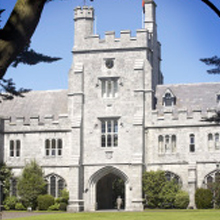In This Section
- Home
- MA in Women's Studies
- PhD in Women's Studies
- Teaching and Supervision Team
- History of Women's Studies at UCC
- Research and Events
- Conference Archive
- (09/10 -06-2017) Women's Voices in Ireland
- (02 -03-2017) Women's History Month Herstory Salon
- (19-06-2016) BodyStories Conference
- (04-09-2015) Performance, Politics, Protest
- (13-06-2017) Women and Austerity Conference Saturday 13th June
- (13-09-2017) Women and the media: feminist concerns
- (06-03-2014) Preventing and combating violence against women and domestic violence
- (01-03-2017) Paying the price to the uttermost farthing? Women and World War
- (15-06-2017) Irish Feminist Activism and the Arts
- (15-06-2012) Women in Politics: from Quotas to Representation
- (25-02-2012) From X to A B C: 20 Years On
- (18-09-2010) Moving in from the Margins
- (09-05-2009) Irish Feminisms and the Future
- (24-05-2008) Exploring Mothers: Discourses, Representations, Practices
- (09-06-2009) Mothering in Contemporary Ireland
- (17-06-2006) Buying Sex is not a Sport
- (27-05-2006) Irish Feminist Futures Postgraduate Conference
- (21-05-2005) If I knew then what I know now
- (12-03-2025) PG7044 International Women's Day Event: Jumping Generations - Revisited
- Graduate and Postgraduate Research
- Staff Research
- Conference Archive
- Graduate Opportunities
- MA students' blog posts
- Relevant Links
- Contact Us
Mothering and motherhood - Mary-Anne Oke

Mary-Anne Oke writes about feminist theories of mothering/motherhood
These classes were on the Feminist Theory of mothering/motherhood, initiating a feminist maternal standpoint. They provided a framework for theoretical analysis and critical thinking on women’s experiences as mothers.
At first, we discussed Adrienne Rich’s (Of Woman Born) crucial distinction between the potential relationship of a woman’s power of reproduction and mothering. This included the patriarchal institution where motherhood, though a powerful and influential social institution, remains under male control, limited and unappreciated. Secondly, we explored other, sometimes contradictory theories on motherhood: such as those of Andrea O’Reilly (Rocking the Cradle) and Sara Ruddick (Maternal Thinking).The purpose of this session was how to challenge the social construction of motherhood.
At first, I was pleasantly surprised that such a concept even existed; such thought-provoking Feminist theory on mothering and motherhood, that unravelled new directions. I have always loved those posters that read, “This is what a Feminist looks like”, but I never took them seriously or even gave them a second thought. This is because mothering and motherhood never evoked feminism for me. The identities ‘mother’ and ‘feminist’ are positioned as oppositional: if you are one, you can’t be the other and you certainly can’t be both simultaneously, i.e. live as a feminist and as a mother. The questions I have always had in my head were how could I be a feminist if I was a mother; how could I be a mother if I was a feminist?
I now know that this is as dumb as asking how a tadpole can live without dampness. Being a woman means being a feminist, who deserves to be treated with equality and dignity. And as a mother, how else could she be except feminist if she wants to live a full and meaningful life, both as a woman and as a mother – who hopes to raise healthy and happy children not damaged by the gender straightjackets the world imposes upon them in our patriarchal culture.
In her monumental work, Of Woman Born: Motherhood as Experience and Institution, Rich asserts that feminist mothering seeks to reclaim power for mothers; to imagine and implement a mode of mothering that mitigates the many ways that patriarchal motherhood, both discursively and materially, regulates and restrains mothers and their mothering. She posits that it is the institution of motherhood that feminists should challenge and change, and not the experience of mothering itself.
Regrettably, though, many people (including myself before now, and the media sometimes) have failed to grasp this important distinction between the institution and the experience. We read feminist critiques of motherhood as attacks on mothers when they are anything but. Mothers are made to feel as if they had in some fundamental way failed feminism, or fallen prey to the false consciousness of patriarchal ideology. Sometimes, becoming a mother means a huge loss: loss of power, freedom, and the ability to determine and define one’s life. This was exactly how I saw my mother, because she functioned daily under the whims and caprices of my Dad. Never questioned or challenged him. I was disappointed in her because I expected more from an educated woman like her. To me, she acted like a robot and a slave. Yet I never reflected on the dynamic way in which she flourished in our home. The smooth running of things, raising us into remarkable women and men. Rather, motherhood appeared to me as inherently and profoundly oppressive to women.
This course was an incredible eye-opening experience because I can now see that it is the patriarchal institution that causes motherhood to be seen in this manner. Feminist mothering, in contrast, affords women power and enables them to affect the societal changes they seek for themselves, their children, and the world at large. It is this that I now believe, and that I will use to enlighten my clueless friends and colleagues.
For me, I totally agree with Adrienne Rich, that if we understand this important distinction between motherhood and mothering and foreground the empowerment inherent in mothering once freed from the institution of motherhood, the identities of mother and feminist are no longer oppositional, but rather, complimentary. Both (mother and feminist) make possible the better world they seek for themselves and their children. This is what a feminist mother looks like! I now adore and respect this idea, and, most essentially, I love my mother the more for being truly a feminist mother!
